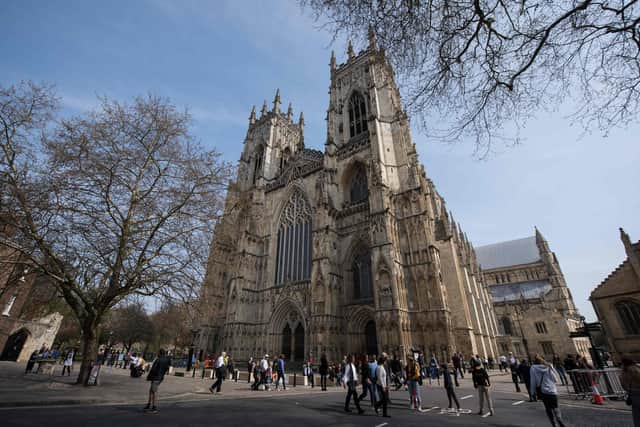Here are the Yorkshire towns and cities that were worst impacted by the pandemic
The Centre for Cities think tank’s annual economic assessment of the UK’s largest urban areas shows that Leeds lost 39 weeks of sales between the first lockdown and the onset of the Omicron variant.
Its Cities Outlook 2022 report showed also that businesses in both Sheffield and Bradford city centres were badly hit with 31 and 29 weeks worth of lost sales.
Advertisement
Hide AdAdvertisement
Hide AdConversely, Huddersfield town centre lost the fewest weeks of sales at 12 weeks with Wakefield losing only 13.


Nationally, Covid-19 has cost businesses in city and large town centres more than a third of their potential takings since March 2020, with central London, Birmingham, Edinburgh and Cardiff worst affected.
Across the 52 city and town centres studied, 2,426 commercial units have become vacant during the pandemic, against 1,374 between 2018 and 2020.
A recurrent theme in the Centre for Cities report shows that high streets in economically weaker places have been less impacted by Covid-19 while commercially stronger places saw business closures increase during the pandemic.
Advertisement
Hide AdAdvertisement
Hide AdA spokesperson said: “This suggests that the Government’s Covid-19 support successfully stalled the decline of many struggling high streets but was less effective in economically stronger places due to higher rents and a lack of custom from office workers.”


However, it is expected that when restrictions ease and office workers return to the offices, that cities and areas of higher levels of affluence will be likely to recover quickly and that less prosperous areas may be hit by a wave of closures.
Vacancy rates for cities and towns in the region vary wildly, with Huddersfield and Leeds top with 3.3 and 2.8 percentage increase in roles available.
However Bradford is ranked as one of the lowest cities in the country for vacancies, with the number of roles available having fallen slightly since March 2020.
Advertisement
Hide AdAdvertisement
Hide AdBradford was also shown to be the region’s worst hit cities in terms of empty retail outlets, with 27.6 per cent of its units shown to be vacant. York was the county’s best performing city with just 11.4 per cent of stores currently empty.


To avoid permanently levelling down prosperous places, policy makers should run campaigns to encourage leisure visitors back when safe to do so and provide part-time season tickets to encourage workers back to the office.
Andrew Carter, chief executive of the Centre for Cities, said that for struggling places, policy makers drafting the Levelling Up White Paper should focus on dealing with these places’ fundamental economic problems to address high street decline and should invest in skills and ways to strengthen the wider local economy.
Mr Carter said: “While the pandemic has been a tough time for all high streets it has levelled down more prosperous cities and towns in Yorkshire. Despite this, the strength of their wider local economies means they are well placed to recover quickly from the past two years.
Advertisement
Hide AdAdvertisement
Hide Ad“The bigger concern is for economically weaker places – primarily in the North and Midlands – where Covid-19 has actually paused their long-term decline. To help them avoid a wave of high street closures this year the Government must set out how it plans to increase peoples’ skills and pay to give them the income needed to sustain a thriving high street.
"Many of these places are in the so-called Red Wall so there is a political imperative for the Government to act fast, as well as an economic one.”